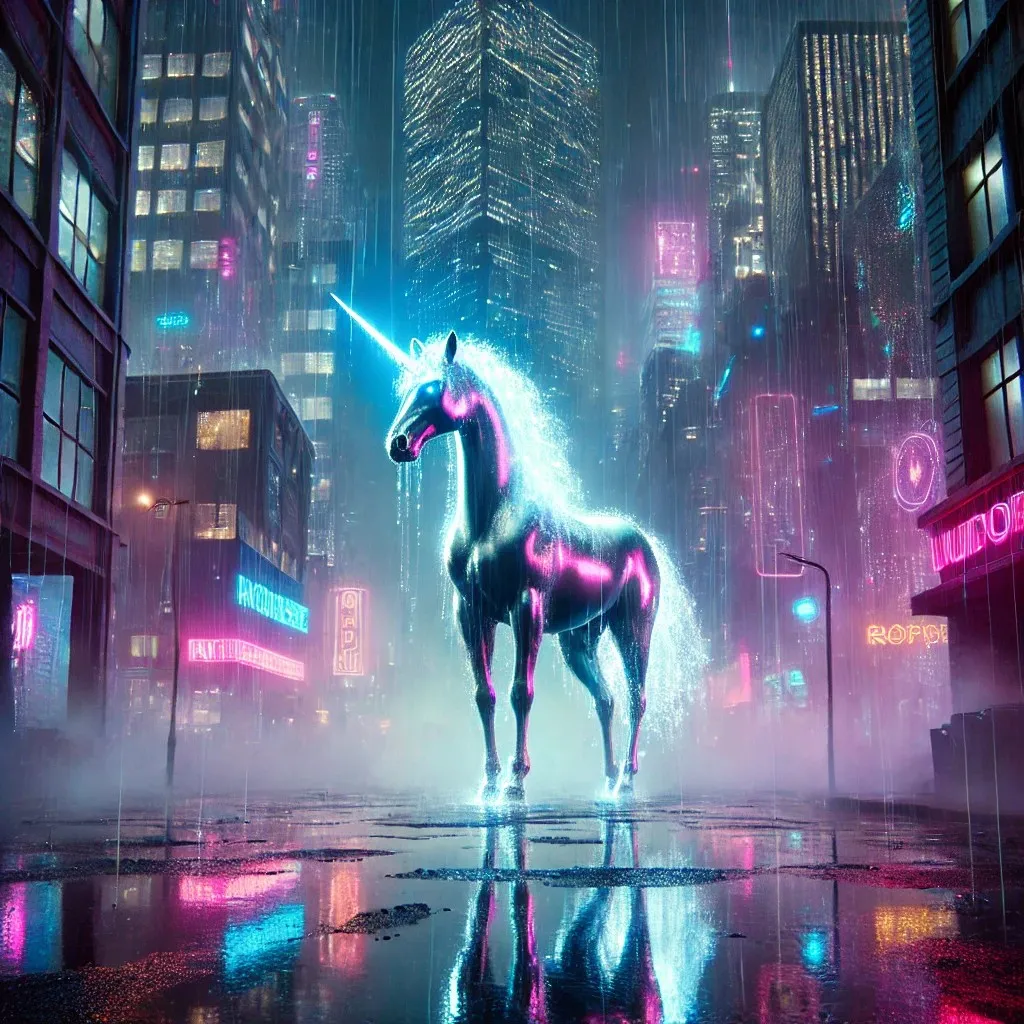Are You an AI Without Knowing It?
There is a back story to this post. Last month, I was invited as a guest to the French Science-Fiction festival Mycéliades, which theme, this year, was on “other kinds of intelligence”. I was delighted when the organisers heartily asked me to contribute a short tribune for the French cultural Magazine Usbek et Rica. I’m by no means an expert in fiction, but this instantly made me think of Blade Runner and I went with it.
It was really fun to shape some of the deepest contemporary metaphysical debates for this format! The goal was to expose how the hard problem of consciousness relates to artificial systems, and how, ultimately, these questions challenge our very understanding of reality. Tiny word limit and an audience generally not familiar with any of these topics. The goal couldn’t be to deliver a thorough explanation, but rather to intrigue and hopefully incite the reader to seek further.
Below is a translation of my article (initially processed through Claude.ai, and post-edited manually). The picture was generated with DALL-E through ChatGPT and is meant to illustrate a little wink to the unicorn in the original movie.

In Blade Runner, a cult cyberpunk film, Harrison Ford hunts Replicants— androids so sophisticated they often surpass humans. One mystery remains open, still debated among fans today: is the Blade Runner himself a Replicant without knowing it? And what if… you too were an artificial intelligence, programmed with memories and dreams that don’t belong to you?
Forget the Turing Test: let’s dive into a reflection on the nature of our reality and the scientific challenge of simulating it.
Consciousness, an Absolute Certainty?
Descartes would object to any doubt through what he considers the fundamental certainty: “I think, therefore I am”. What distinguishes us from automata is precisely the direct experience of our inner life. This space populated with ideas, colors, emotions, and dreams is not material. Consciousness exists in a dimension that is neither tangible nor directly observable through instruments like telescopes or microscopes. In scientific and philosophical jargon, this immaterial aspect of our existence is called phenomenal.
Thus, ensuring our human nature is easy: we simply need to observe the presence of our phenomenal consciousness. A machine feels nothing. It simulates human reasoning, but all its intellectual activity occurs “in the dark”. AI would therefore be a phenomenal zombie.
But is this conviction really foolproof?
What if Consciousness Were an Illusion?
Perhaps we are victims of an old animistic intuition, the one that forged the idea of a soul or life after death. Science suggests that all thought rests on brain activity. Our brain, this biological organ so singular in natural evolution, would be the origin of what we call consciousness.
In opposition to the dualistic intuitions inherited from Descartes, the eminent philosopher and cognitive scientist Daniel Dennett defended a strictly materialist explanation of consciousness. For him, our sensation of being an “internal observer”—what he called the Cartesian theater—is merely an emergent construction of our cerebral processes. According to a significant number of researchers, the phenomenal aspect would be just an illusion. It would be reduced to simple information processing. Computers, like us, manipulate series of physical signals, bits. Consciousness would be software, capable of running on either a brain or a computer circuit.
The series Black Mirror notably explores this possibility through episodes where human consciousness is digitized, copied, or transferred into virtual worlds. But this idea is not confined to fiction. Some scientists seriously consider that we may one day upload this illusion onto electronic devices. Could it be that our consciousness is already virtual?
Matrix and Metaphysics
The convergence of science and philosophy propels us toward science fiction scenarios. In metaphysics, the branch of philosophy dedicated to the study of reality, Matrix serves as a support to deepen reasoning from the computational revolution. According to the simulation hypothesis, it is statistically more likely that we are already within a virtual world than in “reality 0”. We would already simply be the product of a series of instructions executed by a computer, one “reality+” among a multitude of virtual universes.
This hypothesis, although fascinating, remains highly speculative.
The Limits of Simulation
Even if these theories are stimulating, in practice, they still face serious limitations. We are far from having completely deciphered the functioning of the human mind. The modeling of emotions, in particular, continues to be a debated topic in psychology. The “hard problem of consciousness” remains open.
On the energy level, the limits are more obvious. Our brain consumes the equivalent of an LED bulb (about 20 watts), while generative AIs remain extremely energy-intensive. Here again, engineering remains far from equaling the efficiency of natural algorithms. Reproducing a human brain at this scale seems currently out of reach, not to mention the creation of an entire universe.
Besides these obstacles in the simulation of reality, we are primarily materially limited in this quest for the Matrix. Indeed, the construction and maintenance of the computing centers on which large commercial generative AIs rely is not trivial. Raw materials must be extracted, refined, assembled, organized, and these immense computer parks must be managed using limited raw materials and employing numerous human agents.
Even in the optimistic scenario where we could scientifically model reality, the possibility of executing a large number of simultaneous simulations remains largely improbable. At present, the virtual and the real do not merge.
A Reassuring Reality
In the end, could you therefore be an AI without knowing it? For this, the phenomenal consciousness would have to be an illusion, produced by sophisticated information processing, in a world where reality and simulation would be indistinguishable. The possibility thus remains very slim given the overwhelming quantity of alternatives.
Unless there’s a radical techno-scientific upheaval, rest easy: you are undoubtedly human. But until when?